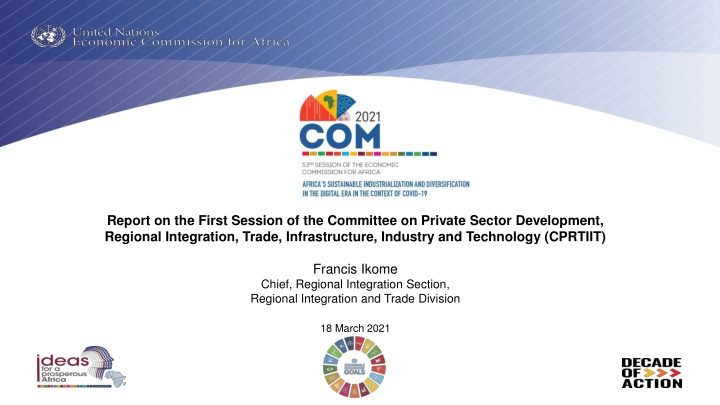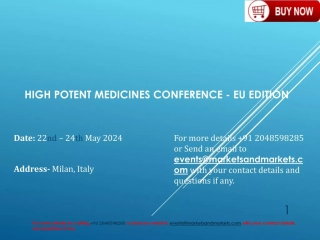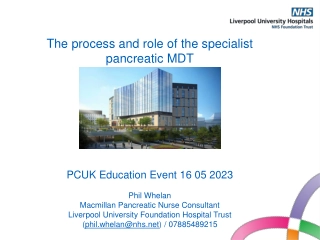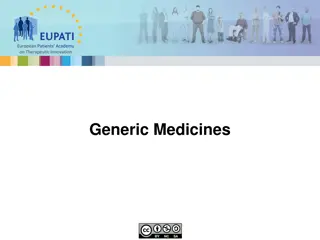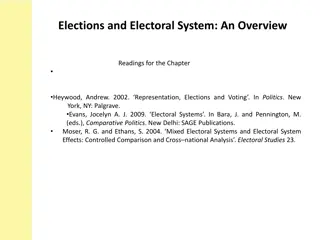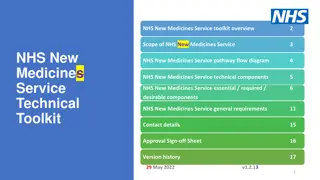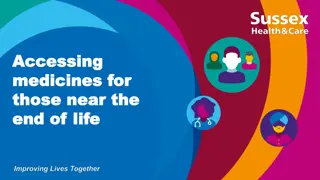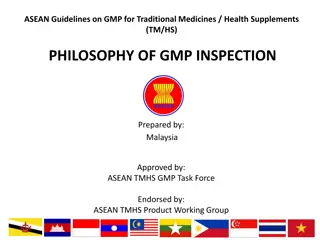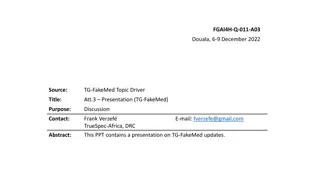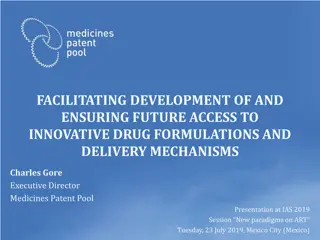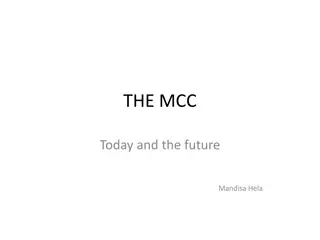Concept of Specialist in Medicines Development (SMD)
Specialist in Medicines Development (SMD) is a competency-based education and training program in Pharmaceutical Medicine. It offers a certificated outcome upon completion of a 4-year curriculum focused on 7 domains. The SMD concept has evolved over more than 50 years with the establishment of professional associations, postgraduate courses, and the recognition of Pharmaceutical Medicine as a medical specialty. The PharmaTrain Syllabus covers topics such as Discovery and Development of Medicines, Clinical Trials, Regulatory Affairs, and Health Economics.
Download Presentation

Please find below an Image/Link to download the presentation.
The content on the website is provided AS IS for your information and personal use only. It may not be sold, licensed, or shared on other websites without obtaining consent from the author.If you encounter any issues during the download, it is possible that the publisher has removed the file from their server.
You are allowed to download the files provided on this website for personal or commercial use, subject to the condition that they are used lawfully. All files are the property of their respective owners.
The content on the website is provided AS IS for your information and personal use only. It may not be sold, licensed, or shared on other websites without obtaining consent from the author.
E N D
Presentation Transcript
Report on the First Session of the Committee on Private Sector Development, Regional Integration, Trade, Infrastructure, Industry and Technology (CPRTIIT) Francis Ikome Chief, Regional Integration Section, Regional Integration and Trade Division 18 March 2021
Background The Session on CPRTIIT took place from 11 to 12 December 2019 & was preceded by 6 EGMs (whose outcomes were inputs for the session) The overarching theme of the Session was: Private Sector Development and the Digital Economy in support of Regional Integration in Africa This was the first Committee Session after the reconstitution of the previous Committee, the CRCI into the new CPRTIIT (CoM decision) The Session was attended by 38 MS, 6 RECs, & 19 representatives from other institutions. The Session discussed issues that were presented or/and arose from: Four (4) technical reports from the ECA units/divisions the make up the Committee Report on the theme of the Session Review of 2018-19 work program for CRCI (old) and priorities for 2020 work program for CPRTIIT (new)
Key Messages from the Technical Reports Progress made in accelerating RI Agenda by the continent. Mixed results with slow pace of implementation in some areas such as free movement persons. Report on on Assessing RI Enhanced support to Africa s LLCs in the implementation of VPoA to reap the full benefit of AfCFTA. Implementation of RI continues to face challenges including financial, human capacity and security issues. ECA support towards RI including work on ARIA, ARII, Negotiations on AfCFTA processes Infrastructure remains one of the key drivers for economic development in Africa. Financing infrastructure projects remains a big challenge to MS, particularly in the area of electricity and energy. Report on Infrastructure and Energy Development of regulatory frameworks for PPPs to finance infrastructure development is critical. The need to use alternative sources to finance infrastructure development including private equity funds.
Key Messages from the Technical Reports Emerging technologies remain key in promoting economic growth, transformation and expansion of digital trade Increased transformation of digital technology in Africa (Africa is home to 11.5 % of the world s total internet users) Report on Emerging Technologies Increased African participation in technologies in support of continent s transformation and achievement of SDGs Need for regional perspective to harness emerging technology to assist implementation of AfCFTA -RECs to serve as vehicles Historical signing of the AfCFTA Agreement by the 55 MS, except Eritrea Ratification by 37 countries by January 2021 (urging other countries to accelerate the process) Report on AfCFTA and trade An increase of intra-African exports of industrial products by 15-25 % in 2040 due to AfCFTA (ECA forecasts) Development of national strategies on AfCFTA to facilitate ratification processes and phase II & III of negotiations
Key messages on the Theme of Session Theme: Private sector development &digital economy in support of RI Inclusion of digital economy for women empowerment in support of RI and AfCFTA Huge investments in science, technology & innovations (including through PPPs) to support RI MS, RECs & Private Sector to leverage from 4th industrial revolution Regional Integration Development of ICT as enabler for digital economy
Key Recommendations of the Session Support more MS in the development of National Strategies to accelerate the implementation of AfCFTA Enhance monitoring of regional integration agenda through deployment of various tools such as ARII, ARIA, and AfCFTA Country Business Index The ECA to deepen analytical work on the impact and benefits of AfCFTA on Member States, member states and other stakeholders Support research that focuses on key drivers of science and innovations The ECA, in collaboration with its partners, to assist MS in the negotiation processes of AfCFTA Phase II &III MS to accelerate the ratification of protocols of AfCFTA and Free Movement of persons which are key in promoting RI RECs to mainstream the Action Plan of BIAT into their programs Enhance support towards capacity building for the RECs/MS to implement their industrialization policies and strategies.
THANK YOU! Follow the conversation: #COM2021 More: www.uneca.org/cfm2021
